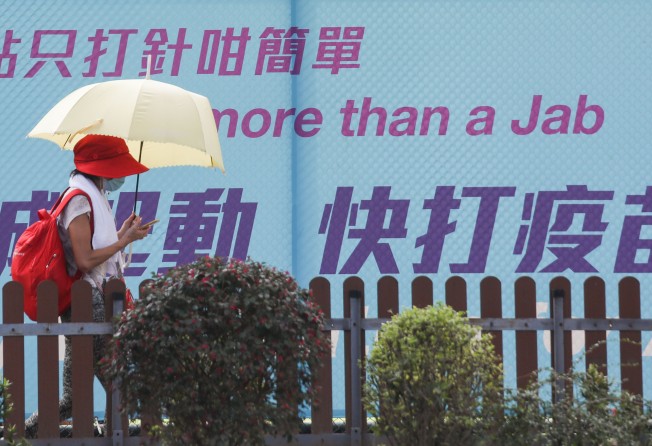As Hong Kong struggles to reach herd immunity, how about a marketing approach?
- Readers discuss how Hong Kong could boost its vaccination rate and why longer hotel quarantine is counter-productive

School is about to start in September. Vaccination against Covid-19 must be one of the more pressing issues in the minds of parents and students. With Ivy League universities requiring students to be vaccinated to attend classes in person, some universities in Hong Kong are adopting a similar approach.
As a teacher, it is my sincere hope that students will take the Covid-19 vaccine because they want to protect themselves, instead of simply complying with a compulsory requirement.
Hong Kong is not alone in the race to herd immunity. In the US, certain states are offering US$100 as an incentive. Japan plans to give reward points or coupons to people in their 20s and 30s. With so many incentives and a well-executed public service announcement campaign, what more can be done?
From a marketing perspective, perhaps the “customer journey map” can help identify areas where additional efforts can be made.
Stage one, “awareness”, is not an issue as everyone is keen to see the numbers exceed the 70 per cent vaccination threshold.
Stage two, “consideration”, can be enhanced with more detailed “customer” segmentation. With roughly 6.5 million Hongkongers 12 years or older, there must be dozens of concerns among the different segments of the population. Some are not sure which vaccine to choose. Some worry about the side effects. Some may not even feel the urgent need to get vaccinated.
Perhaps it is time to look at which population segment is falling behind, to identify the causes and design a comprehensive integrated marketing communication campaign to address that segment’s concerns.
Stage three, “purchase”, is also not a problem as the vaccination programme here is considered a desirable luxury. Stage four, “retention”, is irrelevant as there is no repeat purchase of a Covid-19 vaccine.
Stage five, “advocacy”, can be very effective, especially with regard to young people who do not pay much attention to the mainstream media. In a 2019 survey, 24 per cent of US millennials said their purchasing decisions were influenced by recommendations from friends and family.
Herd immunity is a tall order. It is never too late to try something different to make it work.
Roy Ying, senior lecturer, Department of Marketing, School of Business, Hang Seng University of Hong Kong
Longer quarantine for medium-risk arrivals defies logic
Longer quarantines for those arriving in Hong Kong from medium-risk countries make no sense. The recommendation from a scientific committee under the Centre for Health Protection was given before it was found that the domestic helper whose infection had sparked the meeting had probably caught Covid-19 during her hotel quarantine.
Overseas evidence strongly suggests that the Delta variant has a shorter incubation period than other Covid-19 strains, and that vaccinated people who catch it are infectious for a much shorter period, if they catch it at all. With a 14-day infectious period an extreme outlier for the Delta variant, a 21-day quarantine is silly and increases the risk to Hong Kong by keeping people in the riskiest places in the city – a quarantine hotel along with other unvaccinated people.
Vaccinated people are much less of a risk to Hong Kong and should be treated as such.
Further, these quarantine changes undermine the push for vaccination in Hong Kong, which is the only way out of the pandemic. Why would anybody get vaccinated if their vaccination status is not recognised, and the government’s draconian measures make them think that the Delta variant will never spread in Hong Kong?
The Delta variant will spread in Hong Kong. And unvaccinated people are at risk. Getting people vaccinated is the only way out and as we have seen in numerous other places, the fastest way to raise non-mandatory vaccination rates is a reasonable fear of infection.
A few cases coming in (quickly caught by testing and posing no real risk to society) would be the most effective way to encourage vaccination among the stubborn population. Quarantine changes that undermine the vaccination message will hurt Hong Kong and extend the pandemic for us all.
Sarah Fairhurst, Tuen Mun